Racing wheel vs controller: which is best?
Which will get you the fastest lap time?
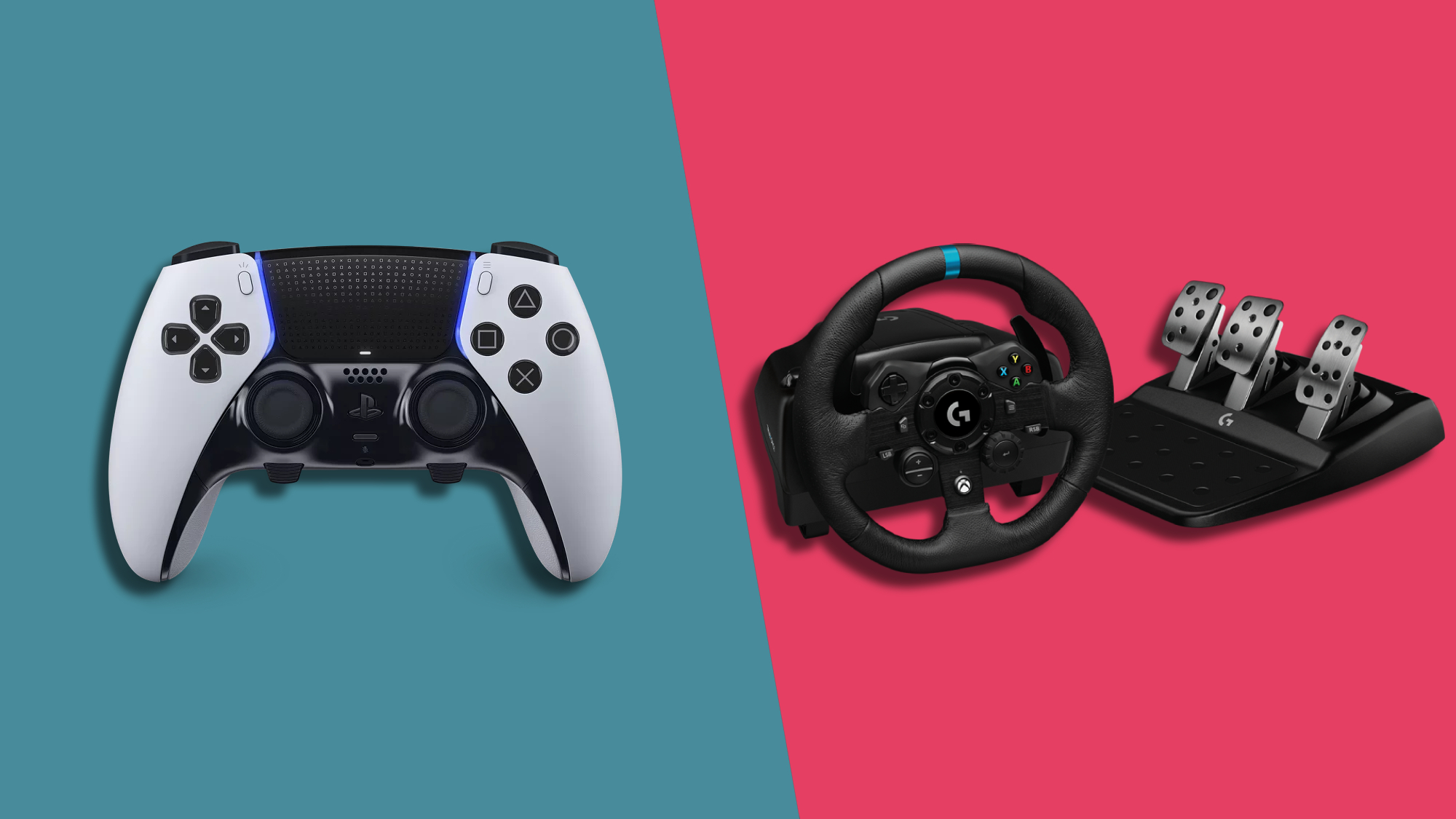
Whether you’re a Gran Turismo guru or a Forza Motorsport fanatic, there’s a good chance you’ve considered picking up a racing wheel for your title of choice, and been mulling over the racing wheel vs controller quandary.
After all, a racing game gains a whole new sense of immersion when paired with one of the best racing wheels around, and whichever platform you’re playing on it definitely feels right to tear around Nürburgring Nordschleife with a wheel in your hands, and pedals at your feet.
Then again, controllers have only improved with time, with haptic updates and improved sensitivity. Here, we pit controllers against racing wheels in a race to, well, our recommendation – strap in!
Racing wheel vs controller: performance and use cases
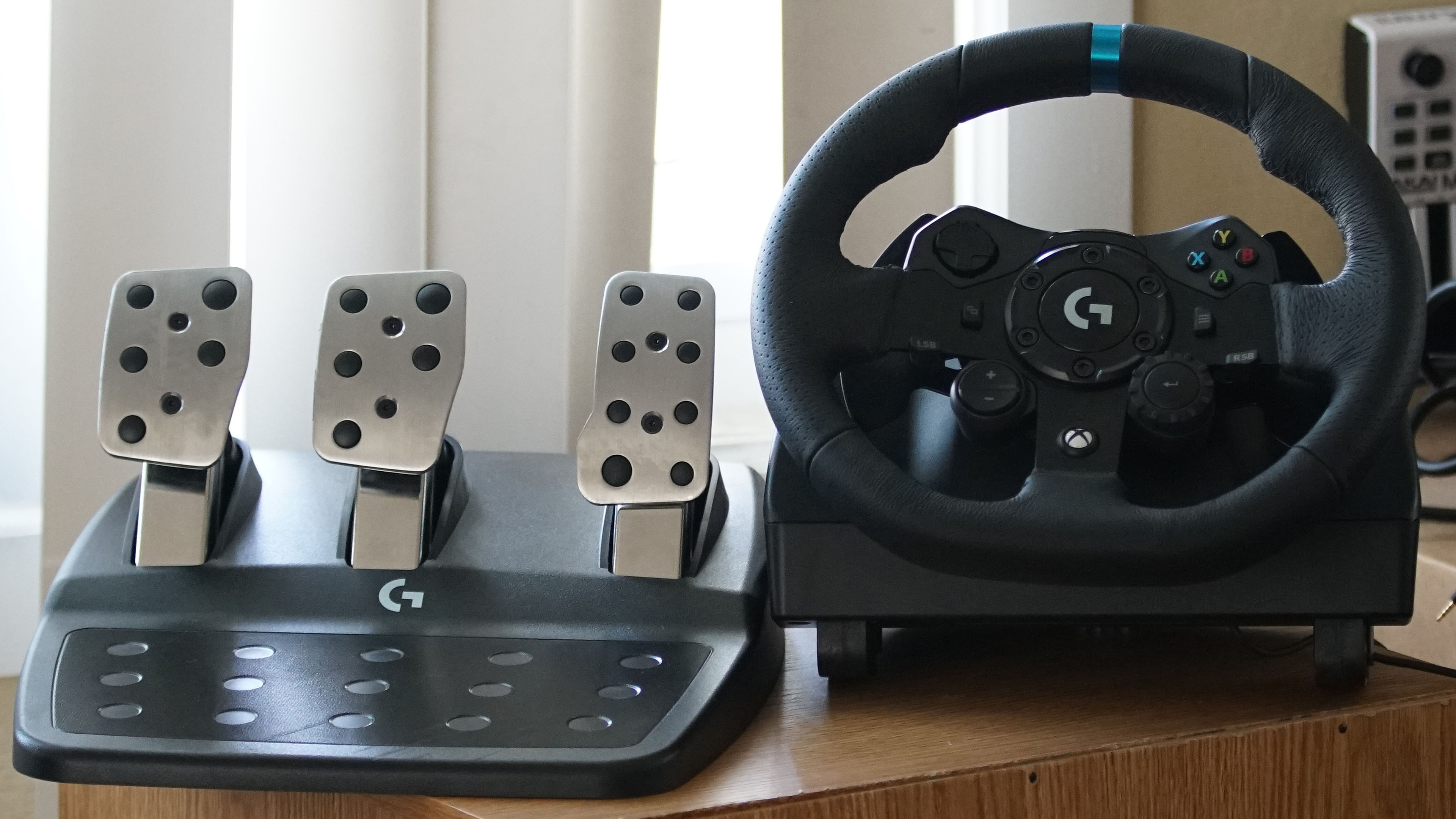
It’s worth noting before we get onto whether a racing wheel can genuinely improve your in-game performance, that they do come with a steep learning curve. After all, your movement is no longer managed by a thumb on a left stick but is now subject to the much more strenuous combined effort of your entire arms.
If you factor the potential intricacies of pedals in, it could be quite some time before you see the chequered flag – let alone reach it first.
You’ll also need some space. While racing wheels are relatively comfortable on your lap, they’ll always feel a little more realistic when you have them on a stable surface like a desk. Equally, if you’re using pedals, you’ll need space to extend your legs, which might make them more ideal for the lounge-based gamer than a bedroom-bound one. Add in a gear stick and a simulation-style chair, and you have a potentially bulky setup.
With those caveats in mind, though, there’s nothing quite like racing around real-world tracks with your hands on a wheel. We recommend the Thrustmaster T248 for PS5 and PC because it’s comfortable and realistic without breaking the bank, and with three pedals included it’s a great way to start a sim setup. It also has Force Feedback, which essentially acts like controller rumble but on a larger scale, meaning you can feel every bump (and crash) in each race.
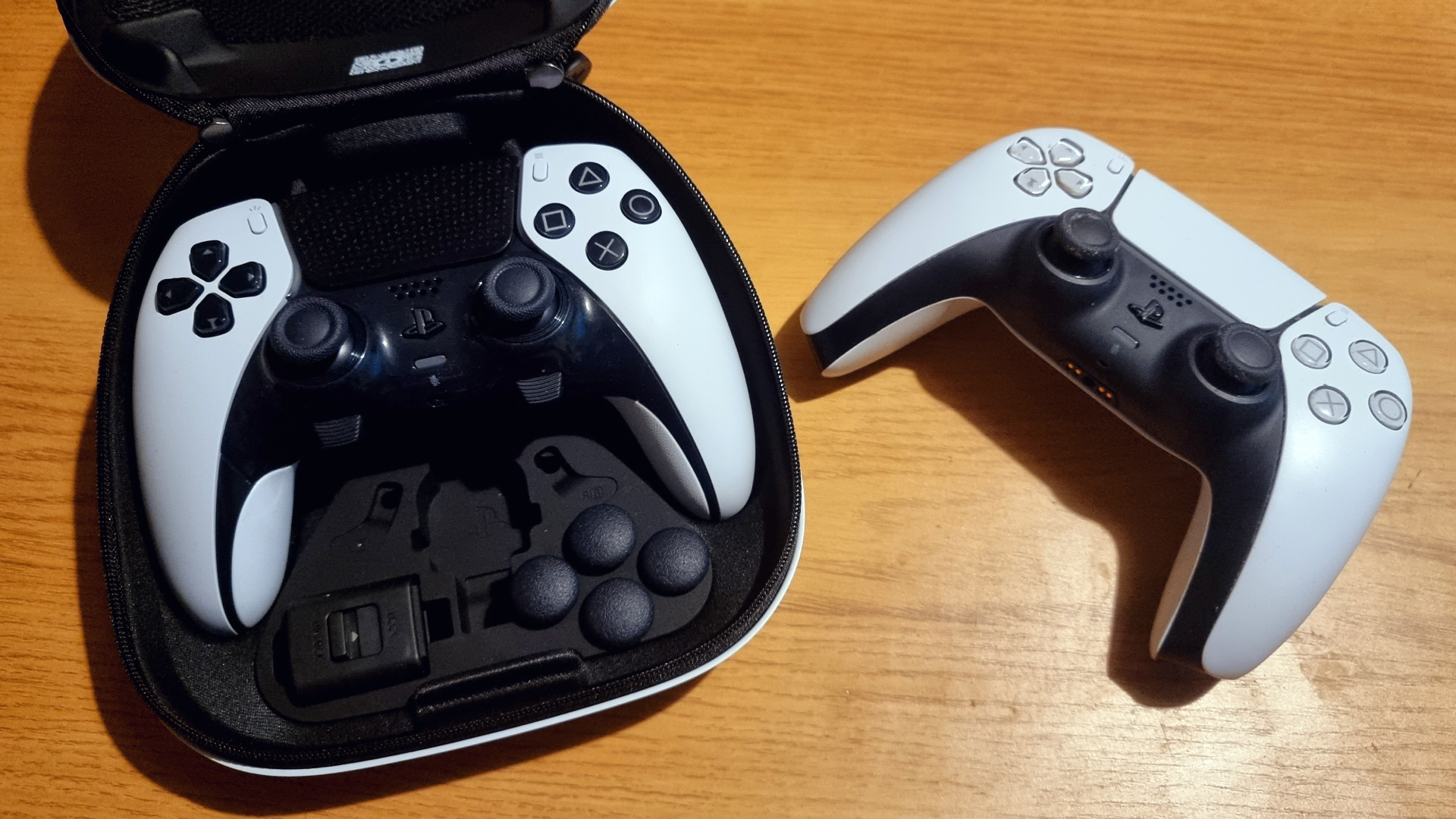
So, with that in mind, why would anyone pick a controller? Aside from the obvious positives that it’s cheaper to do so and you likely already have one, it’s worth considering that the industry shift towards shooters was beneficial for racing gamers, too.
We’ve gone from squidgy R2 and L2 buttons to real, trigger-like inputs with varying degrees of sensitivity. That means you can more authentically ease onto, and off of, the throttle, as well as find more of a spectrum of braking that isn’t as binary as it once was.
Then there are the haptics. While Sony’s Dualsense leads the way in that regard, Xbox’s controller does have better rumble haptics than in prior generations, helping you really feel the road surface beneath your virtual wheels.
Your controller will also work on, well, any game. A racing wheel, regardless of how much you paid for it, won’t be much use with Call of Duty... unless you're doing some kind of mad challenge run.
Racing wheel vs controller: price and value
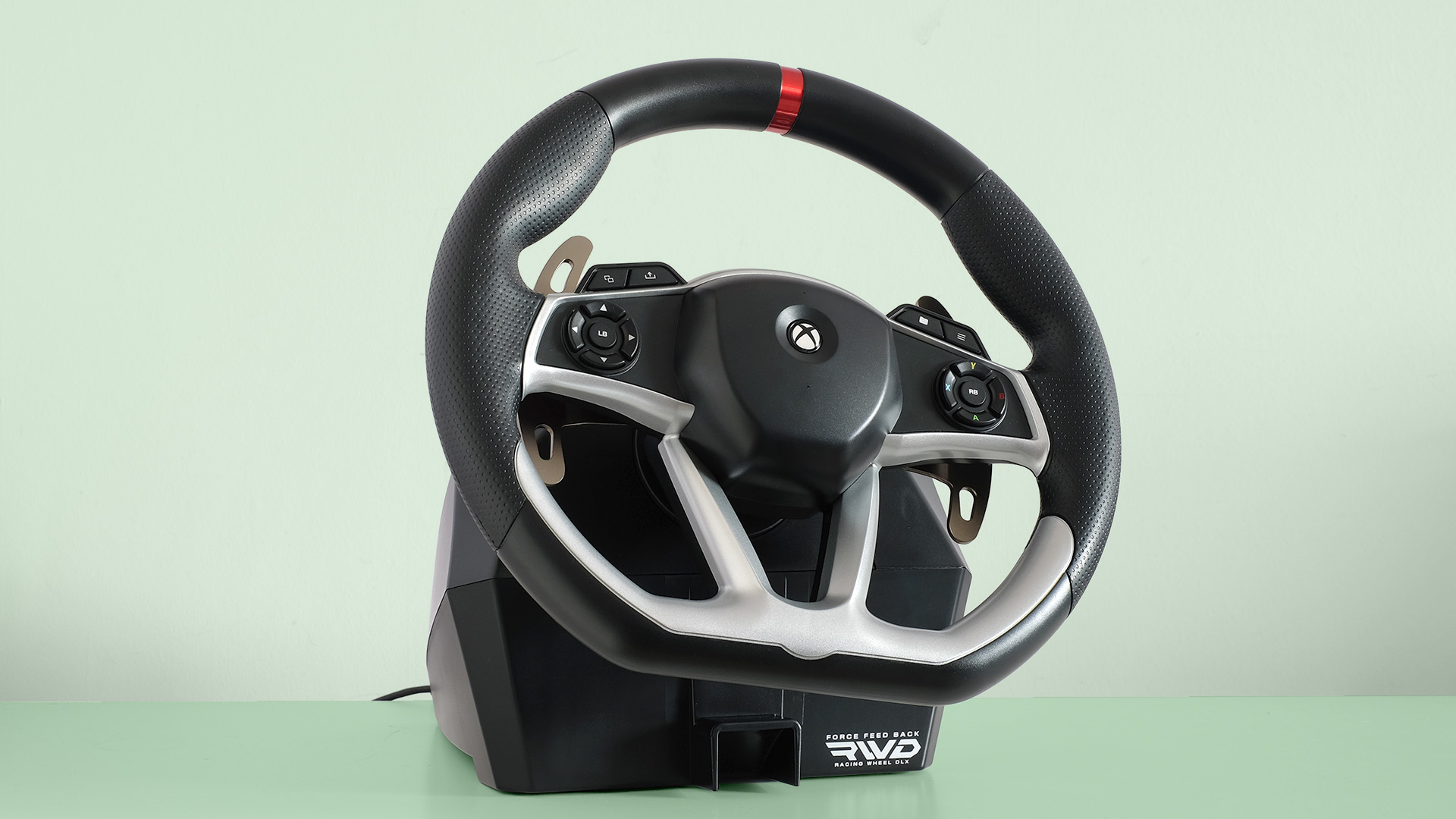
Controllers are also cheaper than racing wheels (as you can probably imagine), and while there are some cheaper wheels (often lacking pedals, force feedback, or both), they’ll still run you more than a controller – and there’s a good chance you already have one if you’re playing on console.
That makes the controller a clear winner, but that doesn’t make a racing wheel too highly priced to consider.
We’ve recommended the Hori Apex because, despite its relatively humble rotation and lack of force feedback, it still packs a wheel and pedals for less than you’d pay for a customizable controller, but that’s still more expensive than just buying a controller.
A Dualsense will set you back around $70, the Hori Apex is $170, and then a Dualsense Edge is $199, meaning there’s a fair range of prices to consider.
That’s before you move into premium wheel territory like the Thrustmaster T-GT II for $799 — more than an entire PS5 Pro.
If playing on PC, it’s worth noting there’s a good chance both the wheel and controller options will be more customizable. Something like the Logitech G920 is a great Xbox wheel, but using it on PC adds a bevy of customization options to help you fine-tune it to your liking.
Some controllers even offer modular wheel sections, like Thrustmaster’s eSwap XR Forza Horizon 5 Edition. These are a solid middle ground, but the pads can start to get pricier with such features included.
Racing wheel vs controller: verdict
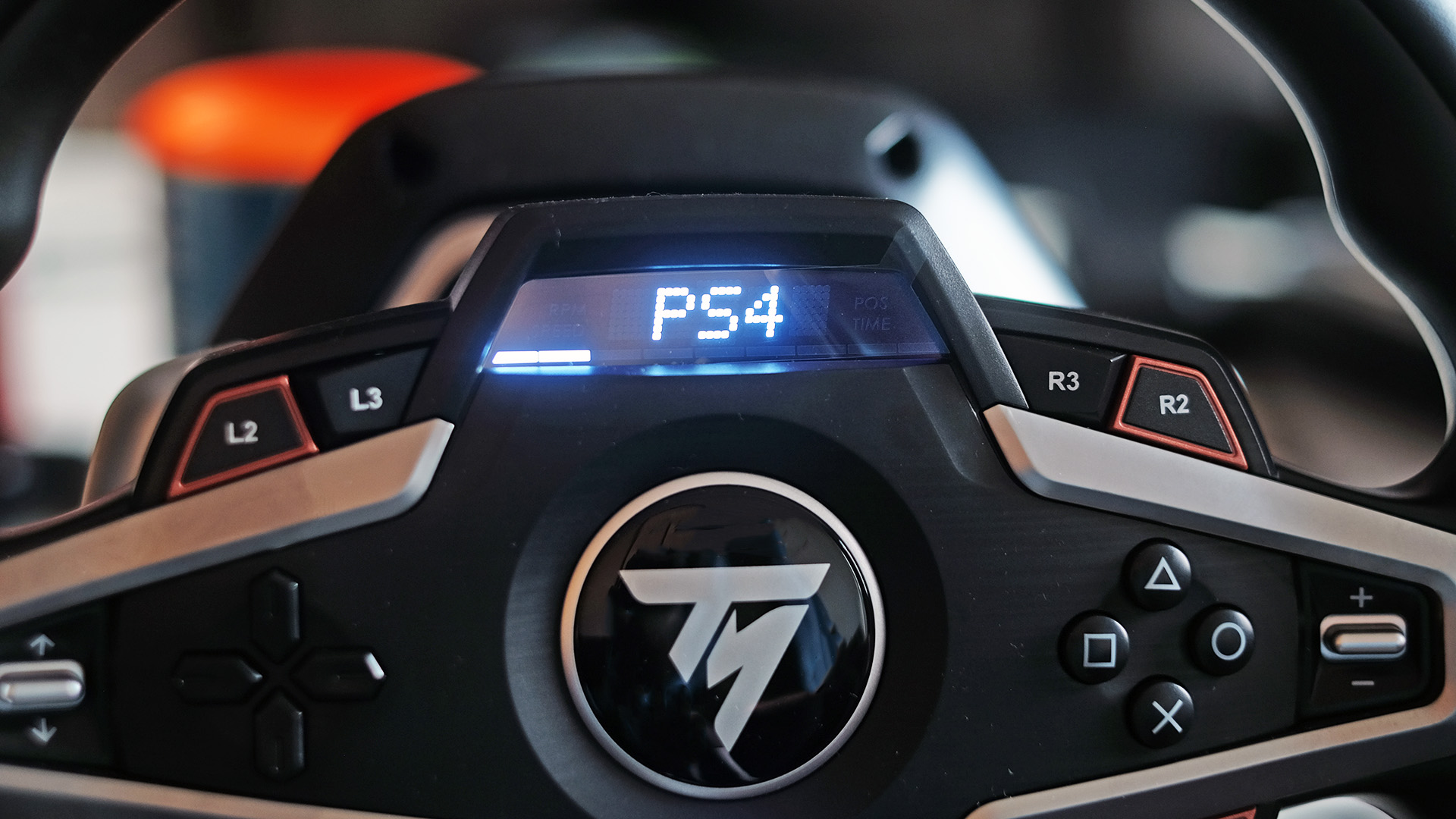
If you’re ready for a learning curve (and your chosen title features some handy assists), a racing wheel adds a ton of immersion for racing games but could cost more than the pad you already have. With controllers getting better every generation, there’s every chance you’ll be just as fine with a pad, though.
Buy a controller if...
You want to hit the tarmac running
You’ll likely find it easier to race using a controller from the start.
You don’t have as much space
A wheel and pedals take up space, whereas a pad will make the most use of the space you do have.
You’re on a budget
There are great cheap wheels, but you likely have a controller already. Plus, racing wheels tend to be much pricier on average than controllers on the whole.
You play some racing games, but enjoy other genres
Unless you’re almost exclusively playing racing games, you may not want to spend the money on something you’re using every now and again.
Buy a racing wheel if...
You’re looking for the next level of immersion
Get your foot down and the wheel turning and there’s nothing quite like a racing wheel for Gran Turismo 7 or F1 24.
You’re looking for a challenge
Wheels and pedals come with their own challenges as you transfer your skills from controller. They take some getting used to, but the reward for learning is ever so satisfying.
Get daily insight, inspiration and deals in your inbox
Sign up for breaking news, reviews, opinion, top tech deals, and more.

Lloyd Coombes is a freelance tech and fitness writer for TechRadar. He's an expert in all things Apple as well as Computer and Gaming tech, with previous works published on TopTenReviews, Space.com, and Live Science. You'll find him regularly testing the latest MacBook or iPhone, but he spends most of his time writing about video games at Dexerto.